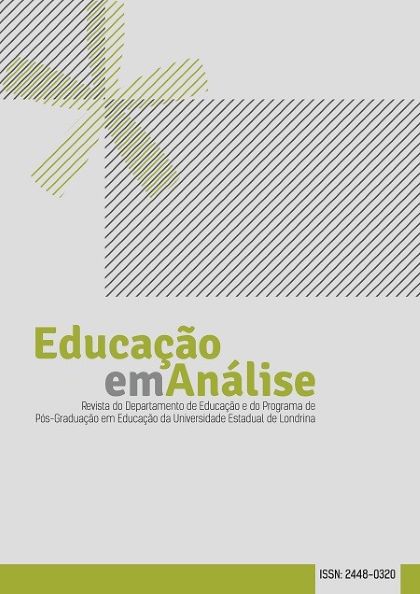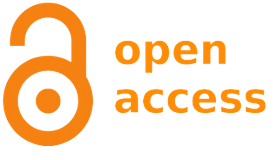Integrated high school in rural areas: the experience of the integrated state Centers of Rural Education of Espírito Santo (CEIERs)
DOI:
https://doi.org/10.5433/1984-7939.2018v3n1p27Keywords:
Integrated secondary education, Integrated professional education for secondary education, Rural educationAbstract
This text aims to present results of the analysis on the integration of Vocational Education and High School in the experience of Integrated State Centers for Rural Education (CEIERs). The guiding line of the research is based on the premise that the conception that guides this integration is coherent with a project of social development that denies the immediate relation of education with the labor market, having the full human formation as a horizon, but it recognizes the professionalization as a necessary mediation for the working class to produce its existence through its work in a dignified manner. The empirical study was carried out by analyzing the political and pedagogical projects of three CEIERs located in Espírito Santo northwest cities – Águia Branca (CEIER/AB), Boa Esperança (CEIER/BE) e Vila Pavão (CEIER/VP) – articulated to the interviews with directors, teachers and students of these schools. With this text, we intend demonstrate the relationship between the concept of Integrated Higher Education and the Rural Education, because we can verify that, in confronting contradictions imposed by the hegemony of capital, these schools have developed a political-pedagogical proposal guided by principles of such a conception through an experience of the integration between Professional Education and High School in the Rural EducationDownloads
References
CARVALHO, José Murilo de. Mandonismo, coronelismo, clientelismo: uma discussão conceitual. Dados: Revista de Ciências Sociais, Rio de Janeiro, v. 40, n. 2, 1997. Disponível em: http://www.scielo.br/scielo.php?script=sci_arttext&pid=S0011- 52581997000200003. Acesso em: 20 jul. 2017.
CEIER - CENTRO ESTADUAL INTEGRADO DE EDUCAÇÃO RURAL (Espírito Santo). Plano de Curso. Águia Branca: CEIER, 2014a.
CEIER - CENTRO ESTADUAL INTEGRADO DE EDUCAÇÃO RURAL (Espírito Santo). Projeto Político Pedagógico. Águia Branca: CEIER, 2014b.
CEIER - CENTRO ESTADUAL INTEGRADO DE EDUCAÇÃO RURAL (Espírito Santo). Projeto Político Pedagógico. Boa Esperança: CEIER, 2014c.
CEIER - CENTRO ESTADUAL INTEGRADO DE EDUCAÇÃO RURAL (Espírito Santo). Projeto Político Pedagógico. Vila Pavão: CEIER, 2014d.
CIAVATTA, Maria. A formação integrada: a escola e o trabalho como lugares de memória e de identidade. In: FRIGOTTO, Gaudêncio; RAMOS, Marise; CIAVATTA, Maria (org.). Ensino médio integrado: concepção e contradições. São Paulo: Cortez, 2005. p. 83-105.
CIAVATTA, Maria. O trabalho docente e os caminhos do conhecimento: a historicidade da Educação Profissional. Rio de Janeiro: Lamparina, 2015.
CUNHA, Luiz Antônio. Educação, Estado e democracia no Brasil. São Paulo: Cortez, 2005.
GERMANO, José Wellington. Estado militar e educação no Brasil: 1964/85. Um estudo sobre a política educacional. 1990. Tese (Doutorado em Educação) - Universidade Estadual de Campinas, Campinas, 1990.
JESUS, José Pacheco de. A práxis pedagógica no Centro Estadual Integrado de Educação Rural: um estudo em educação do campo e agricultura familiar em Vila Pavão/ES. 2012. 245 f. Dissertação (Mestrado em Educação) - Universidade Federal do Espírito Santo, Vitória, 2012.
KOSÍK, Karel. Dialética do concreto. Rio de Janeiro: Paz e Terra, 1976.
LOBINO, Camila Ferreira. As entidades associativas não governamentais e o monocultivo de eucalipto no Espírito Santo. 2008. 201 f. Dissertação (Mestrado em Planejamento Urbano e Regional) - Universidade Federal do Rio de Janeiro, Rio de Janeiro, 2008.
MARX, Karl; ENGELS, Friedrich. O manifesto comunista. Rio de Janeiro: Zahar, 1978.
MÉSZÁROS, István. A educação para além do capital. São Paulo: Boitempo, 2008.
PRADO, Adonia Antunes. Ruralismo pedagógico no Brasil do Estado Novo. Estudos Sociedade e Agricultura, Rio de Janeiro, n. 4, p. 5-27, 1995.
RAMOS, Marise Possibilidades e desafios na organização do currículo integrado. In: FRIGOTTO, Gaudêncio; CIAVATTA, Maria.; RAMOS, Marise. (Org.) Ensino médio integrado: concepções e contradições. São Paulo: Cortez, 2005. RAMOS, Marise. Concepção do ensino médio integrado. 2007. Disponível em: http://forumeja.org.br/go/sites/forumeja.org.br.go/files/concepcao_do_ensino_medio _integrado5.pdf. Acessp em: 20 jul. 2018.
RAMOS, Marise. Filosofia da práxis e práticas pedagógicas de formação de trabalhadores. Trabalho & Educação, Belo Horizonte, v. 23, n. 1, p. 207-218, jan./abr. 2014.
RAMOS, Marise; MORATORI, Raquel. Uma reflexão sobre o conceito de cultura e sua relação com o trabalho e a ciência no projeto educativo. In: ALBUQUERQUE, Gregório; VELASQUES, Muza; BATISTELLA, Renata. Cultura, politecnia e imagem. Rio de Janeiro: Fiocruz, 2017. p. 65-90.
SILVA, Tomaz Tadeu. Documentos de identidade: uma introdução às teorias do currículo. Belo Horizonte: Autêntica, 2004. SIRVENT, Maria Teresa (org.). Educação comunitária: a experiência do Espírito Santo. São Paulo: Brasiliense, 1984.
SOUSA JUNIOR, Justino de. Omnilateralidade. In: PEREIRA, Isabel Brasil; LIMA, Julio César França. Dicionário da educação profissional em saúde. Rio de Janeiro: EPSJV, 2008. p. 284-292.
WOOD, Ellen Meiksins. As origens agrárias do capitalismo. Crítica Marxista, São Paulo, v. 50, n. 3, jul./ago. 1998.
Downloads
Published
How to Cite
Issue
Section
License
The journal reserves the right to make normative, orthographic and grammatical changes in the originals, with the aim of maintaining the cultured standard of the language and the credibility of the vehicle. It will, however, respect the authors' writing style. Alterations, corrections, or suggestions of a conceptual nature will be sent to the authors when necessary. In these cases, the articles, after being adequate, should be submitted to a new appreciation.









